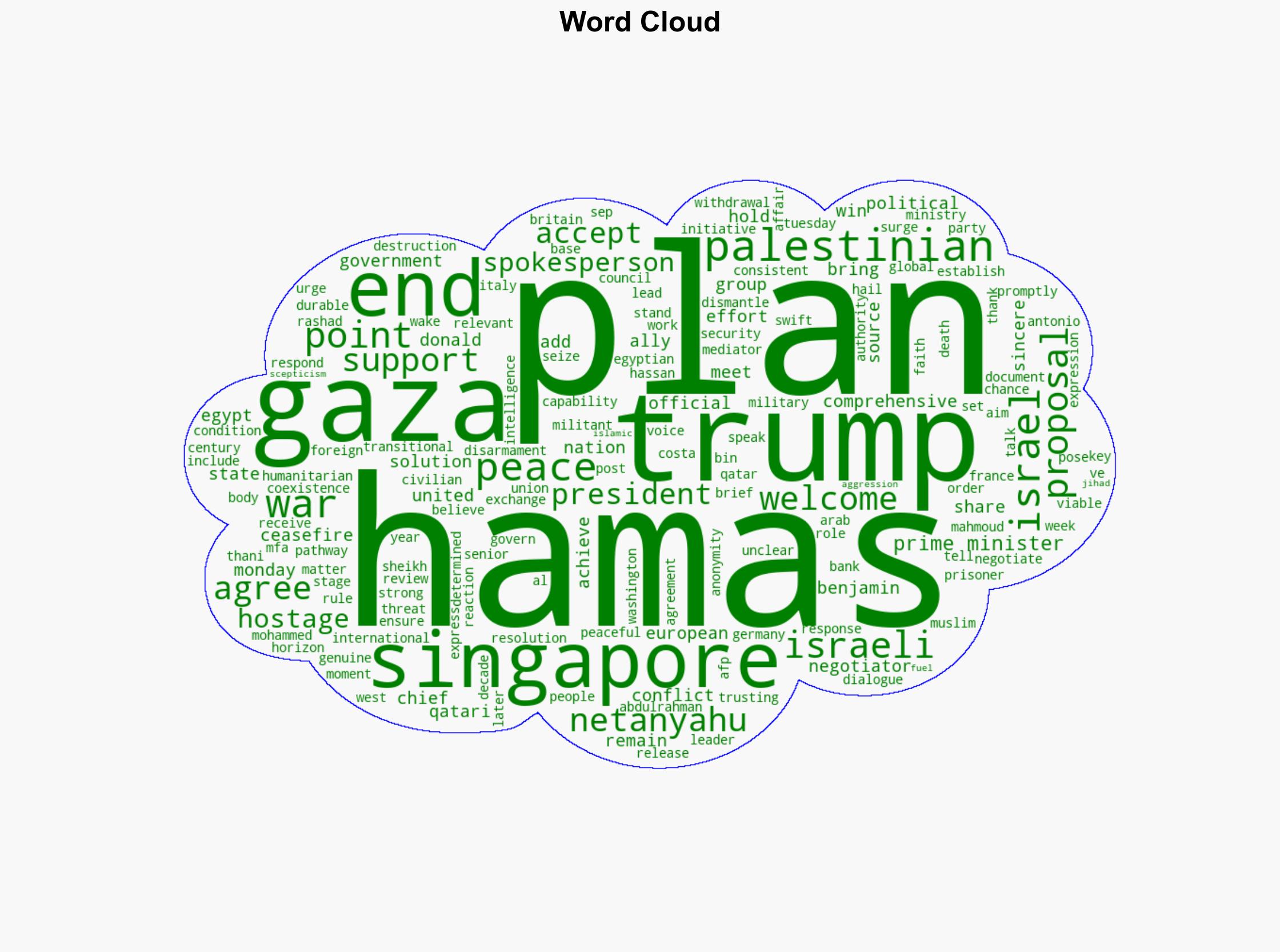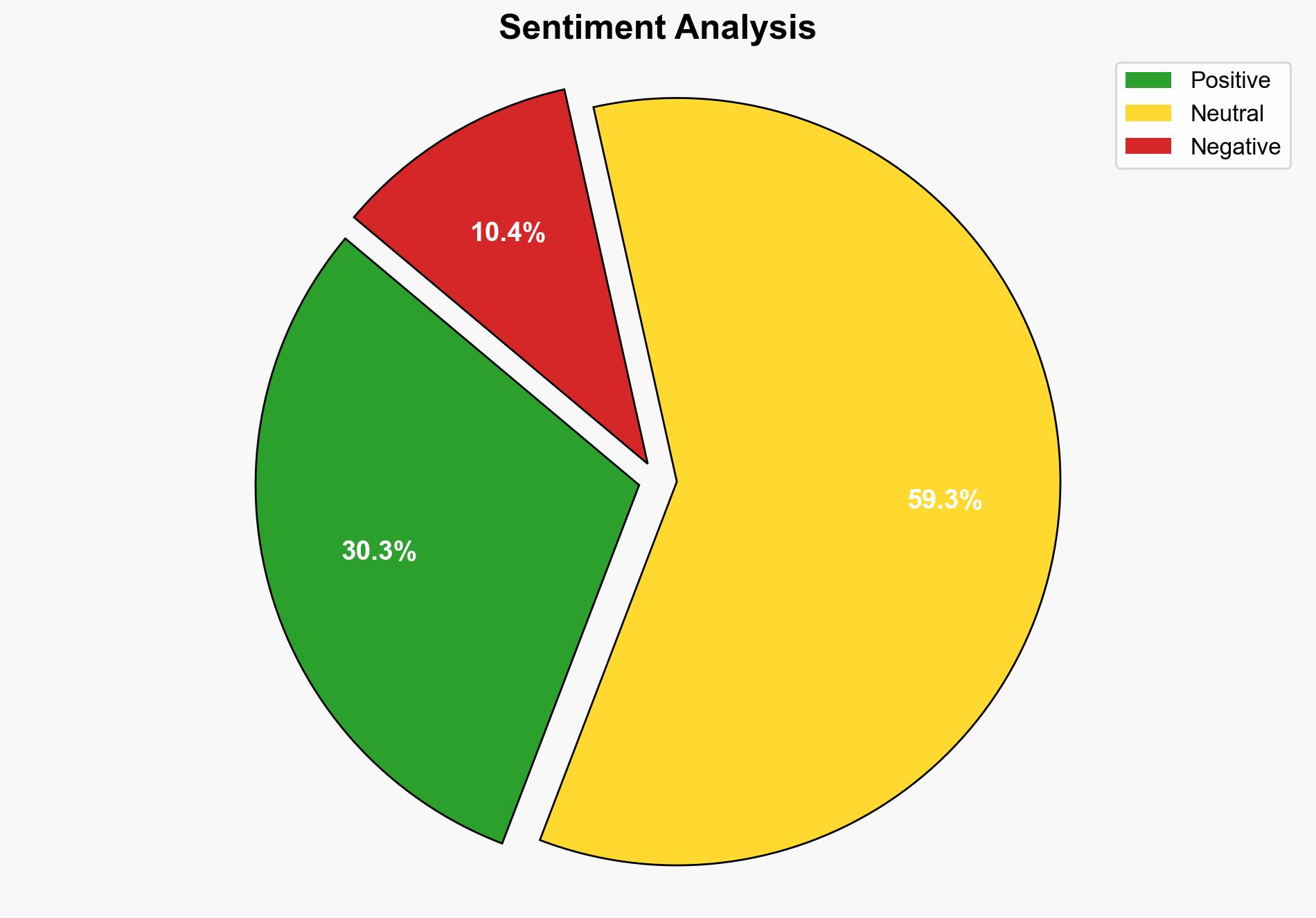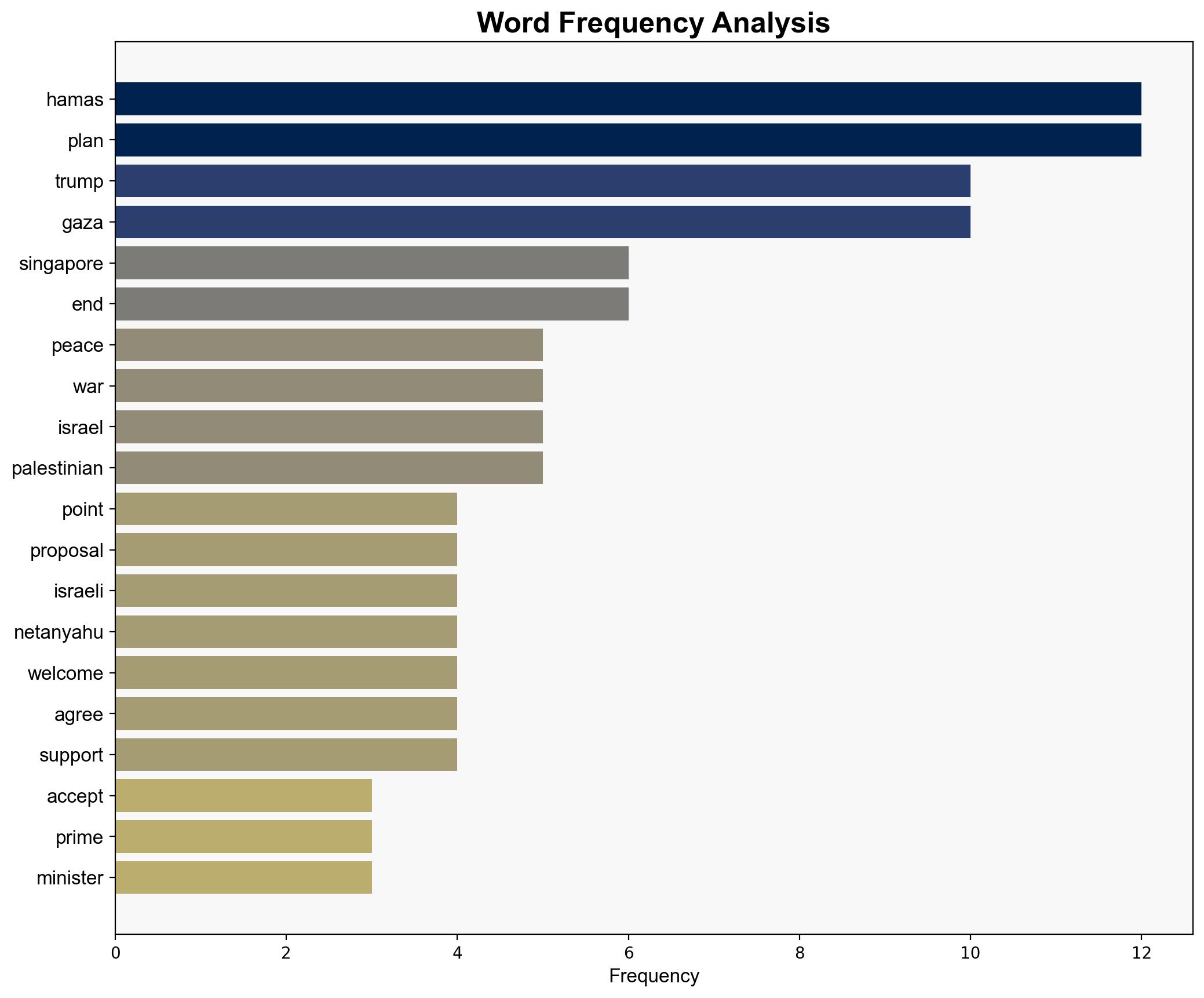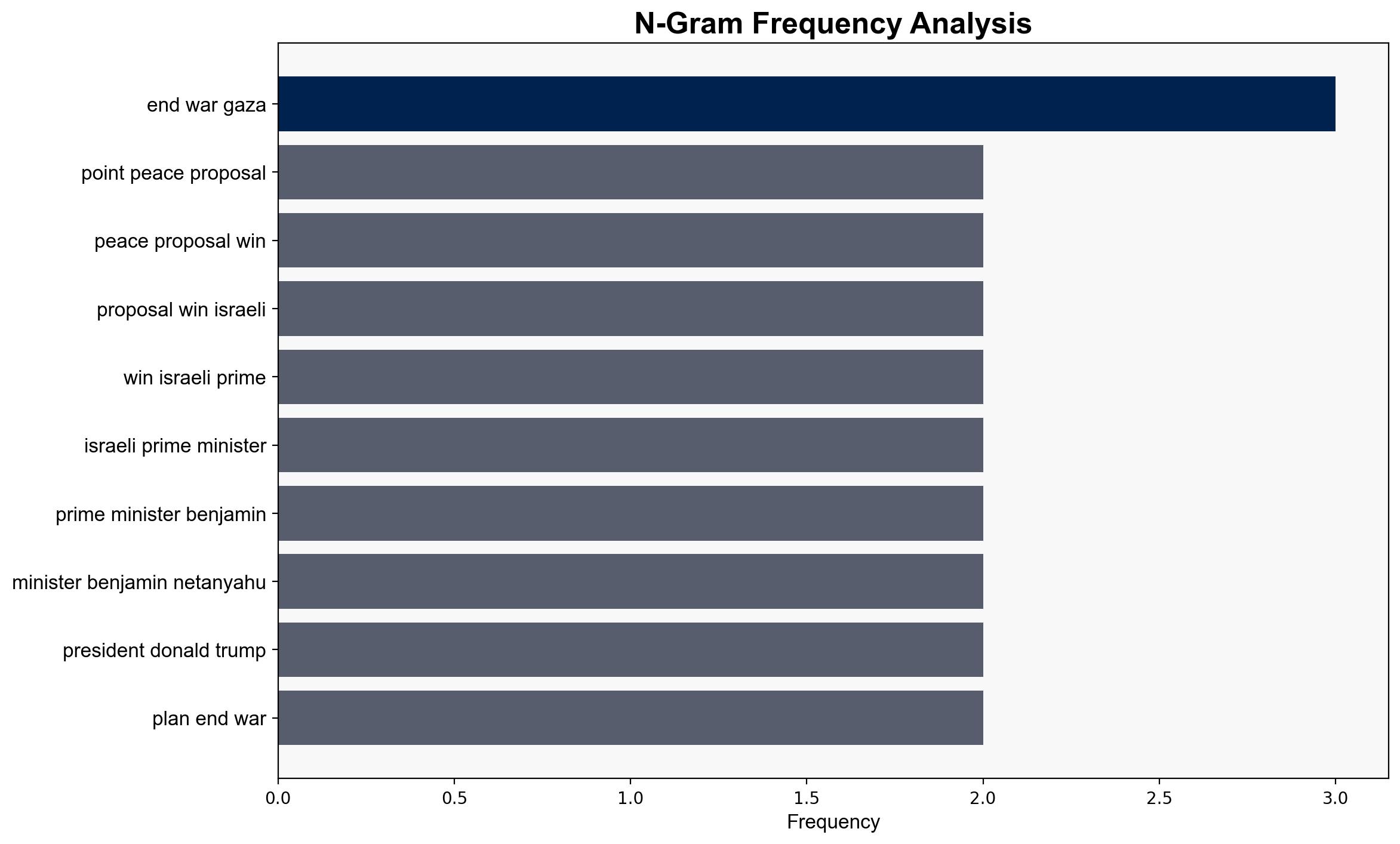Singapore calls on Hamas to accept Trumps Gaza peace plan – CNA
Published on: 2025-09-30
Intelligence Report: Singapore calls on Hamas to accept Trump’s Gaza peace plan – CNA
1. BLUF (Bottom Line Up Front)
The most supported hypothesis is that Singapore’s call for Hamas to accept Trump’s Gaza peace plan is an effort to stabilize the region and align with international diplomatic efforts, despite skepticism from key stakeholders. Confidence in this hypothesis is moderate, given the complex geopolitical dynamics and historical resistance from Hamas. Recommended action is to monitor regional reactions and prepare for potential shifts in alliances or escalations.
2. Competing Hypotheses
1. **Hypothesis A**: Singapore’s endorsement of Trump’s peace plan is a strategic move to align with U.S. foreign policy and strengthen bilateral relations, while promoting regional stability.
2. **Hypothesis B**: Singapore’s call is primarily symbolic, aimed at maintaining a neutral stance and appeasing international pressures, without expecting actual acceptance by Hamas.
Using ACH 2.0, Hypothesis A is better supported due to Singapore’s consistent alignment with U.S. policies and the broader international support for the plan, despite Hamas’s historical opposition.
3. Key Assumptions and Red Flags
– **Assumptions**: It is assumed that Singapore’s foreign policy is heavily influenced by its economic ties with the U.S. and its desire for regional stability.
– **Red Flags**: The lack of direct engagement or response from Hamas suggests potential misalignment or miscommunication. The anonymity of sources discussing Hamas’s reception of the plan raises questions about the reliability of the information.
– **Blind Spots**: The reaction of other regional powers, such as Iran, is not addressed, which could significantly impact the plan’s feasibility.
4. Implications and Strategic Risks
– **Geopolitical Risks**: If Hamas rejects the plan, it could lead to increased tensions and violence in Gaza, affecting regional stability.
– **Economic Implications**: Prolonged conflict could disrupt trade routes and economic activities in the region, impacting global markets.
– **Psychological Impact**: Continued conflict may exacerbate humanitarian crises, affecting civilian morale and international perceptions.
5. Recommendations and Outlook
- Engage in diplomatic dialogues with key stakeholders, including Egypt and Qatar, to facilitate a more comprehensive peace process.
- Monitor regional media and intelligence reports for shifts in Hamas’s stance or unexpected regional alliances.
- Scenario Projections:
- Best Case: Hamas accepts the plan, leading to a ceasefire and gradual stabilization.
- Worst Case: Rejection leads to escalated conflict and regional destabilization.
- Most Likely: Continued stalemate with intermittent violence and diplomatic efforts.
6. Key Individuals and Entities
– Donald Trump
– Benjamin Netanyahu
– Sheikh Mohammed bin Abdulrahman Al Thani
– Hassan Mahmoud Rashad
– Antonio Costa
7. Thematic Tags
national security threats, regional focus, diplomacy, Middle East peace process




